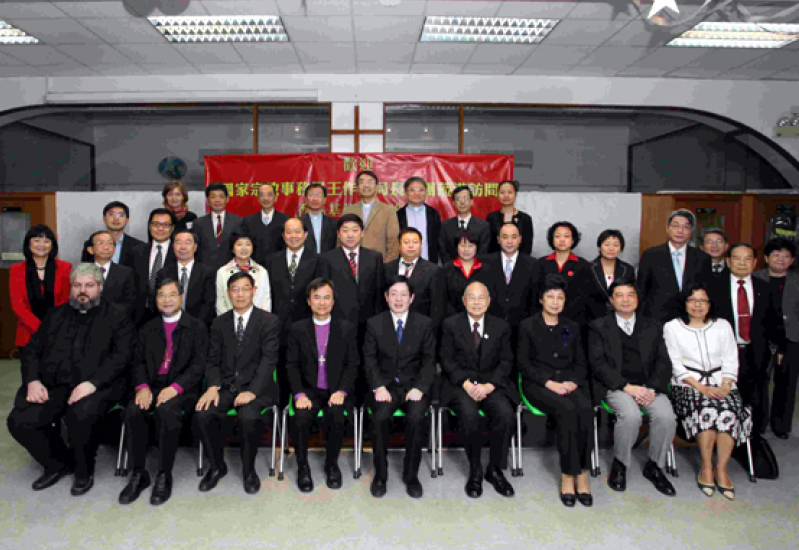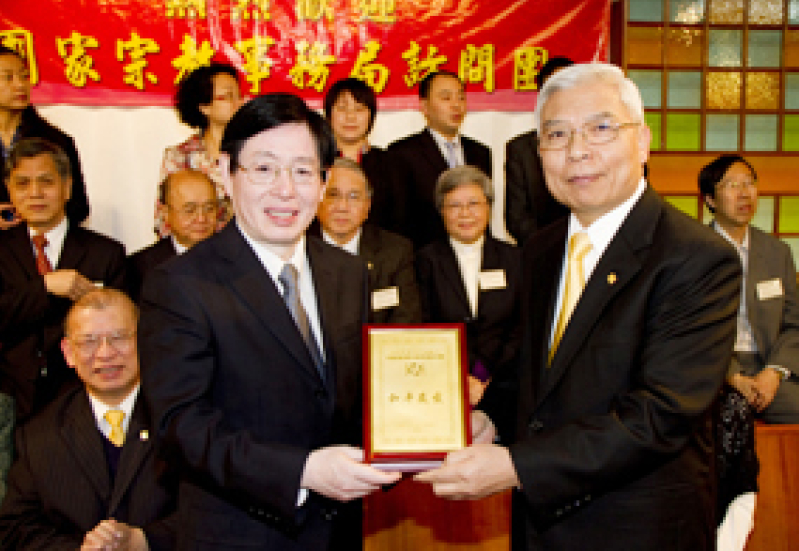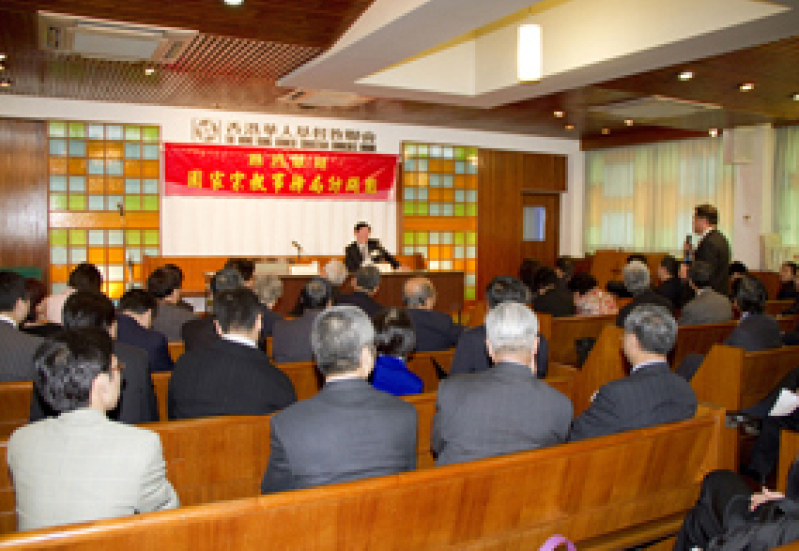


From March 26-30, the head of China’s religious bureau met with the religious leaders in Hong Kong.
Wang Zuo-an, director of State Administration for Religious Affairs, was invited by two representing Christian church bodies, Hong Kong Christian Council and Hong Kong Chinese Christian Church Union, to meet with their constituencies.
During their meeting, church ministers from Hong Kong raised their concerns and questions on the religious policies and church needs in mainland.
At first, Wang shared that since China’s economic reform 30 years ago, the country’s economy as well as all religions have developed very rapidly. Among the religions, Christianity has the most noticeable growth. While outside sources report various figures for number of Christians in China, the government’s report that was conducted by an independent group show that there are around 16-20 million believers.
In the 60’s, the believers in China numbered around 700,000, and today that figure has increased by 20 times, which is around 20 million.
The society today looks upon Christianity with a different set of lenses. Not long ago, it is said that with one more Christians, then there is one less Chinese, but today this saying holds true, “With one more Christian, there is one more exemplary citizen.”
Moreover, he said that while the believers increase but with the lack of ministers, believers cannot gain access to pastoral guidance, which leads to low-level in quality, and folk beliefs are mixed with the doctrines.
Meanwhile, the speed at which the church buildings are built cannot cope with the increase in the number of believers, so today’s churches in mainland needs to immediately resolve the problem of raising Christian workers, management of churches, and theological education.
When it comes to registration of churches and gathering points, Wang said the government is neutral in her stance towards religion and the reason to implement meeting place registration is to protect the believers with the security provided under the law.
House churches not registering with the government is a complicated issue. The bureau worries that some will use church as a means to live, some house churches do not teach the proper doctrines, and some overseas individuals even teach that “house churches” are the real church.
In light of the increase of traveling for Hong Kong residents to mainland for business and studies in recent years, church ministers in Hong Kong asked whether they would be able to share the gospel in work places. In response, Wang said that it is okay to hold gatherings in companies just as long as they do not break the law.
Still others asked that while some Hong Kong residents prefer to join Hong Kong style worship gatherings, would it be necessary that they register with the government and would they be able to invite pastors from Hong Kong to come to preach?
Wang said that the Chinese government has always been concerned about the religious lives of those from abroad living in mainland and is willing to open up local churches to offer services in foreign languages, assisting the foreign nationals to devote in their religious lives.
As for inviting speakers from abroad to come to mainland to speak, there are corresponding procedures that should be followed, such as submitting the invitation at churches or designated gathering points. SARA is in the process of finalizing the details for this procedure and will announce them within this year.
In the seminar hosted by HKCCCU, various ministers showed their concerns for church developments in mainland and gave some suggestions for churches in mainland and Hong Kong to work together.
Some suggested for the union to work together with SARA to set up seminaries and to raise church workers in mainland; still others suggested for ministers and believers from Hong Kong to evangelize and conduct missions in mainland.






